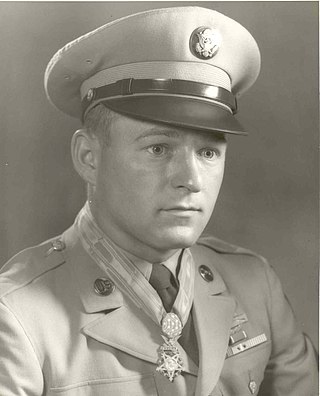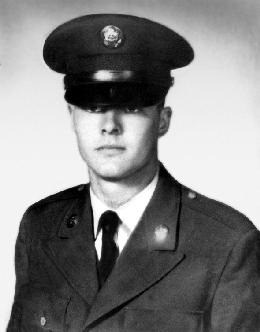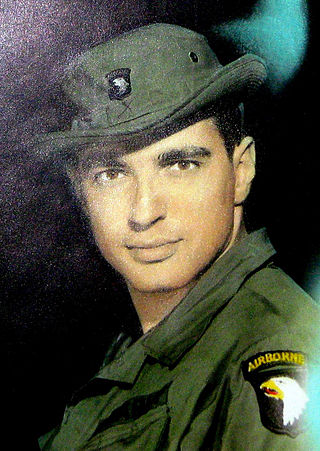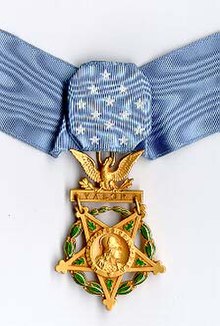
Thomas William Bennett was a United States Army medic who was killed in action during the Vietnam War and the second conscientious objector to receive the Medal of Honor.

Daniel Dwain Schoonover was an enlisted soldier of the United States Army during the Korean War and a posthumous recipient of the Medal of Honor at the Second Battle of Pork Chop Hill.

John Walton Collier was a soldier in the United States Army during the Korean War. On June 24, 1951, he posthumously received the Medal of Honor for his actions during the breakout from the Pusan Perimeter.

Maximo Yabes born in Lodi, California, was a United States Army soldier who posthumously received the Medal of Honor — the United States' highest military decoration — for his actions near Phu Hoa Dong in South Vietnam during the Vietnam War. Yabes distinguished himself when he used his body as a shield to protect others in a bunker, moved two wounded men to a safer position where they could be given medical treatment and destroyed an enemy machine gun position before being mortally wounded.

William Franklin Lyell was a soldier in the United States Army during the Korean War. He posthumously received the Medal of Honor for his actions on August 31, 1951.

Charles Frank Pendleton was a soldier in the United States Army during the Korean War. He posthumously received the Medal of Honor for his actions on 16–17 July 1953 during the Battle of Kumsong.

Ronald Eugene Rosser was a United States Army soldier who received the United States military's highest decoration, the Medal of Honor, for thrice attacking a hill alone, killing 13 enemies while wounded and carrying wounded comrades to safety one winter day in the Korean War.

Puerto Ricans have served as members of the United States Armed Forces and have fought in every major conflict in which the United States has been involved from World War I onward. Many Puerto Ricans, including those of Puerto Rican descent, have distinguished themselves during combat as members of the five branches of the U.S. Military, the Army, Marines, Navy, Air Force and the Coast Guard.

Raymond Richard Wright was a United States Army soldier from New York and a recipient of the United States military's highest decoration—the Medal of Honor—for his actions in the Vietnam War.

Jerry Wayne Wickam was a United States Army soldier and a recipient of the United States military's highest decoration—the Medal of Honor—for his actions in the Vietnam War.

Kenneth Edward Stumpf was a United States Army soldier and a recipient of the United States military's highest decoration, the Medal of Honor, for his actions in the Vietnam War.

William Wayne Seay was a United States Army soldier and a recipient of the United States military's highest decoration—the Medal of Honor—for his actions in the Vietnam War.

Ray McKibben was a United States Army soldier and a recipient of the United States military's highest decoration—the Medal of Honor—for his actions in the Vietnam War.

Robert David Law was a United States Army soldier and a recipient of the United States military's highest decoration—the Medal of Honor—for his actions in the Vietnam War.

George Charles Lang was a United States Army soldier and a recipient of the United States military's highest decoration—the Medal of Honor—for his actions in the Vietnam War.

Leonard Bert Keller was a United States Army soldier and a recipient of the United States military's highest decoration—the Medal of Honor—for his actions in the Vietnam War.

Frank Rocco Fratellenico was a United States Army soldier and a recipient of the United States military's highest decoration—the Medal of Honor—for his actions in the Vietnam War.

Leslie Halasz Sabo Jr. was a soldier in the United States Army during the Vietnam War. He received the highest military decoration, the Medal of Honor, for his actions during the Cambodian Campaign in 1970.

Victor Hugo Espinoza was a U.S. Army veteran of the Korean War and a recipient of the Medal of Honor for his actions during the Battle of Old Baldy.















